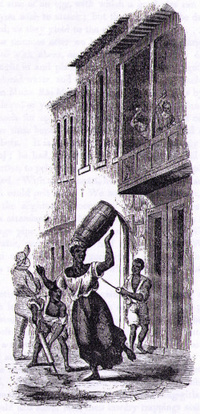The conflicts over entrudo—a form of celebration castigated in the nineteenth century as a “barbarous game”—constituted a struggle about Brazil’s very nature at a time when new notions of citizenship and nationhood, challenges to slavery, and openings to outside cultural influences provoked numerous social anxieties involving questions of race, class, and gender.
This examination of cultural change and cultural conflict in nineteenth-century Brazil focuses on pre-Lenten celebrations and the origins of what is today the quintessentially Brazilian festival of carnaval (carnival). Its primary focus is the repression of entrudo, a form of celebration castigated in the nineteenth century as a “barbarous game,” inappropriate for the newly-independent country, and the institution of “civilized” forms of celebrations – carnaval – in the decades after mid-century. Both entrudo and carnaval were ways of celebrating before the fasting and other abstinence of Lent (the six weeks before Easter in the Christian calendar). Invariably described by contemporaries as a Portuguese custom, entrudo involved a variety of activities, including lavish banquets, practical jokes, and widespread water fights with syringes and waxen balls filled with perfumed water (or other less savory liquids). In the late eighteenth and early nineteenth centuries, entrudo was widely practiced by people of all classes; to be sure, lower-class and slave celebrants tended to play among each other and thereby respected social hierarchies, but men and women of the elite doused each other just as enthusiastically during the three afternoons before Ash Wednesday devoted to entrudo.
While there had been sporadic concern about entrudo in the colonial period, systematic criticism only began after independence in 1822, reflecting new anxieties about social and political changes as slavery declined, the free black population grew, cities expanded, and new cultural influences modified gender relations. Critics condemned entrudo for its pernicious effects on health and the violence that occasionally erupted, but mostly excoriated it as a “barbaric” and “uncivilized” practice, unworthy of the nation that they sought to build.
Register here





